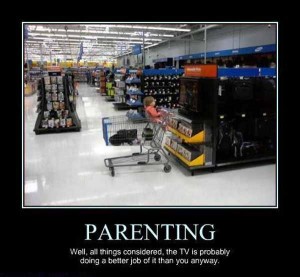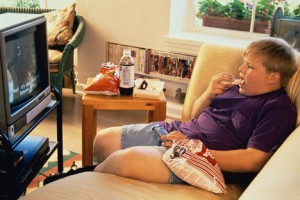T.V. is Wack, T. V. is Cheap
Young children today are impressionable. They form habits based on what they see and hear others around them do or say. As Television and other media devices become more available to children, this means that they gather information from a wider variety of sources. Though, the information they gather from these sources may not be in the best interests of young children.
In my classmate’s post regarding the reading journal prompt “Kids and T.V.”, Morgan Manuel has found an article that expresses some of her mutual concerns about the negative effects television has on young children as they form habits in the early stages of their lives. Her main worries she shares with the author of the article are (1) that television conveys a message of violence toward young minds and can potentially be imitated, (2) the presence of sexual content exposed in certain television programs and (3) that children form unhealthy habits or become lazy as a direct result of watching too much television.
Morgan has connected her points to examples present in Ray Bradburry’s The Veldt in the course reading packet. She makes valid points about how the violence present in television today is related to the violent acts experienced in the futuristic house, the setting of Bradburry’s short story. Also, Morgan also points out the effects of laziness that television has on children when she connects the laziness and dependence on the nursery that has driven the children in the story to murder their parents to ensure the safety of their lazy ways. The children are disrespectful, defiant, and even harmful to their parents. Although I could not find instances of sexual behavior blatantly expressed in the text, Bradburry explains that the electronic room in the story became a channel towards destructive thoughts for the children (167).
Here is a little anecdotal aside about Kids and T.V. courtesy of Willy Wonka and the Oompa Loompas.





